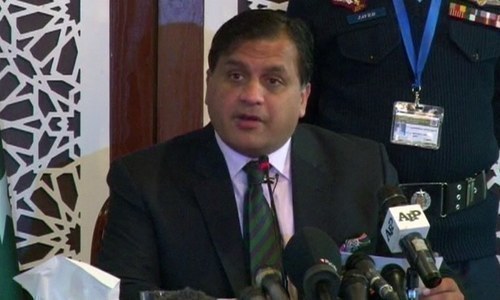It is a dispute that Pakistan can and should have stayed out of, or at the very least waded into sensibly and with diplomatic tact.
Instead, a one-sided position has been taken that makes Pakistan look weak and may introduce wrinkles in a relationship with a friendly Western country.
Saudi Arabia’s disproportionate response to arguably clumsy attempts by Canada to highlight human rights violations in the former country is a lesson in how not to conduct bilateral relations. For Pakistan, however, the choice was more straightforward: hew to previous formulations of neutrality in bilateral disputes between friends and allies, and avoid getting entangled in a dispute where the country had little to gain and much to lose.
The caretaker administration is to hand over the reins of government to the PTI for the first time in a few days’ time — a manifestly valid reason for postponing a policy decision until the new government finds its feet. But for reasons that the caretaker government has not made clear, it has chosen to side with Saudi Arabia in its dispute with Canada.
Perhaps an argument can be made that Saudi Arabia is on the diplomatic warpath and with Pakistan suffering acute pressure on the external account front, the possibility of financial aid, oil imports on preferential terms and sustaining crucial foreign remittances from Saudi Arabia has meant having to choose sides.
See: Saudi-backed IsDB ready to help Imran-led govt with $4 billion loan
But Pakistan has not overtly taken sides in the Saudi Arabia-led Gulf embargo against Qatar, and prime minister-elect Imran Khan has pledged to try and ease tensions between Saudi Arabia and Iran. Surely, the Saudi-Iran and Saudi-Qatar differences are of far greater importance to Saudi Arabia than its dispute with Canada.
For Pakistan to so unnecessarily align itself against Canada is also to disregard trade relations and diplomatic ties with a friendly Western power and the thousands of Canadians of Pakistani origin. Better sense ought to have prevailed. Pakistan should maintain neutrality and promote peaceful relations wherever it can.
Published in Dawn, August 11th, 2018













































